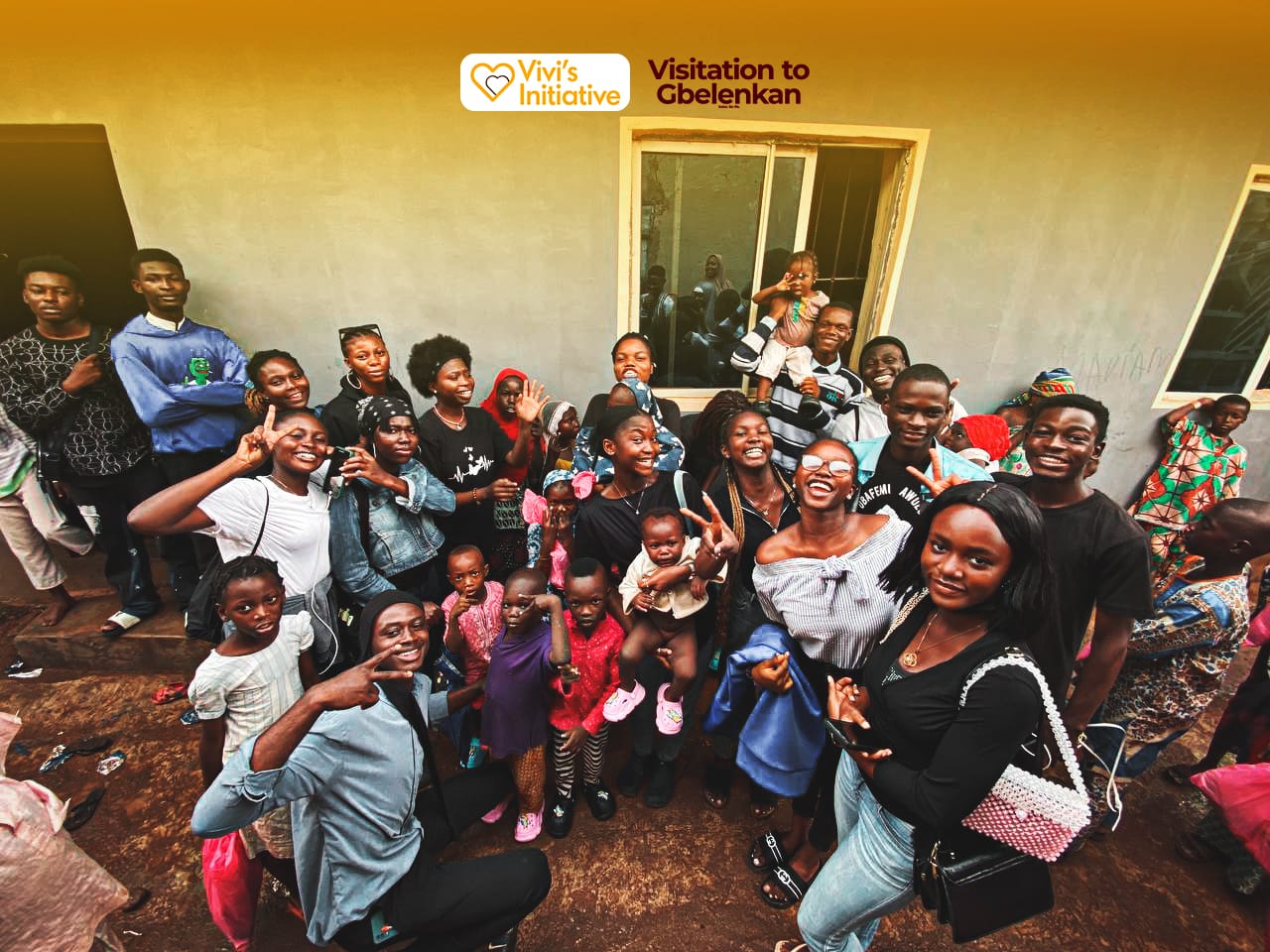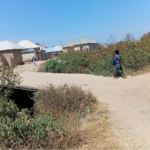Vivian Amoo has always been sensitive to social differences. Some children, she noticed, didn’t have access to a good education or lacked basic needs. For others, it was the absence of a secure environment to grow. As she observed, all of these challenges underscored the need the for adequate support for children.
Poised to make a difference, she started Vivi’s Initiative, which helps children with not only support but also resources to excel in life. For Vivian, every child, no matter their background, deserves a chance at success.
Part of this ideal derived from a tragic experience in her childhood, when she fell off a rickety wooden bridge while searching for water, breaking her right thigh. Only four years old at the time, the accident left her bedridden for years, delaying her education and leaving her life much worse.
Yet she persevered, aced her papers and got admission to study law at the Obafemi Awolowo University, Ile-Ife, in Southwest Nigeria.
In May 2023, Vivian revisited her childhood neighbourhood. The sight of children playing barefoot on dusty streets brought back memories of her own struggles. “I remembered going to neighbours’ houses just to watch television or sleeping on mats because we didn’t have beds,” she said.
Moved by these reflections, Vivian posted a video of her interactions with the children. The video resonated with viewers online, encouraging her to take action. “People started reaching out, asking how they could help. That’s when I realized I could do something meaningful,” she said.
And in June that year, she officially launched Vivi’s Initiative, a platform that attended to children with a background and hers, and with the vision to show them that they too can reach their dreams.
Nigeria’s blinding poverty
Nigeria, Africa’s most populous nation, faces a significant challenge with poverty. Approximately 75 million Nigerians live in multidimensional poverty, characterized by a lack of access to education and opportunities to dream and aspire for a better future. This poverty significantly hampers a child’s potential, limiting their educational attainment, health, and social and emotional well-being. It can also lead to challenges such as stigma, discrimination, and restricted social mobility.
According to UNICEF, poverty from a child’s perspective extends beyond financial hardship. Children often perceive poverty as the absence of essential resources like shelter, education, nutrition, clean water, and healthcare. The lack of these basic necessities creates deficits that are difficult to overcome later in life.
Even when children are not overtly deprived, having fewer opportunities compared to their peers in any of these areas can constrain their future prospects. UNICEF reports that in Nigeria, 24.36% of children live below the international poverty line, surviving on less than ₦275.25 per day.
And having experienced this, Vivian insists that she will ensure others see the light, one child at a time. “Maybe if someone had come to my neighborhood and treated me as more than just a ‘girl from those dirty places,’ love and hope could have been easier,” she reflected.

A party for everyone
Vivi’s initiative focuses on underserved communities, providing both material support and opportunities for children to envision a life beyond their struggles. The organization organizes book drives, distributes school supplies, gives motivational talks, and even hosts parties for children.
In December 2023, the group hosted a Christmas party for children in Aba-Gboro, distributing gifts and essential items to over 70 children.The group this year held an outreach to Gbenlenkan, focusing on hygiene education and distributing toothbrushes, toothpaste, and soap to over 80 children. This outreach was funded by a ₦50,000 seed grant from The 234 Project’s Community Impact Challenge.
Rukayat, a mother whose children benefited from the first and fourth outreach events, described the impact on her family. She said, “We used the materials they shared with the children, and we were very happy about it.”
Despite its growing impact, Vivi’s Initiative faces significant challenges with funding, relying heavily on donations to sustain its programs. The lack of resources has limited the organization’s ability to expand its reach.
Maintaining volunteer morale is another hurdle. Most of the volunteers are students, and balancing their academic responsibilities with volunteer work can be exhausting. When a decline in morale is noticed, Vivian actively engages with the individual, working collaboratively to find a solution.
Despite these challenges, Vivian remains steadfast in her mission. She believes that “A smile on a child’s face is more than just words; it is a reminder of how a little act of kindness can light up a child’s world and create lasting joy. Together, let us keep spreading smiles, one child at a time.”
This story was produced with the support of Nigeria Health Watch through the Solutions Journalism Network, a nonprofit organisation dedicated to rigorous and compelling reporting about responses to social problems.
Amoo Vivian grew up amidst severe poverty in the slums of Ile-Ife, Nigeria, surrounded by societal neglect and personal hardships, including a broken thigh that left her bedridden for years. Despite these challenges, she excelled academically and was admitted to study law at Obafemi Awolowo University. Driven by her past experiences, Vivian launched Vivi’s Initiative to support children in similar circumstances, aiming to provide them with opportunities and inspire them to dream beyond their backgrounds.
Vivian’s initiative operates in underserved communities, offering material support, education, and motivation to children. They organize book drives, distribute school supplies, and host events like Christmas parties for children. Despite the impactful work, the initiative struggles with funding, relying heavily on donations and volunteer support. Vivian remains committed to her mission of spreading smiles and hope to children through small acts of kindness. Her work highlights the broader issue of multidimensional poverty in Nigeria, which hampers children’s potential by depriving them of basic necessities and opportunities.






